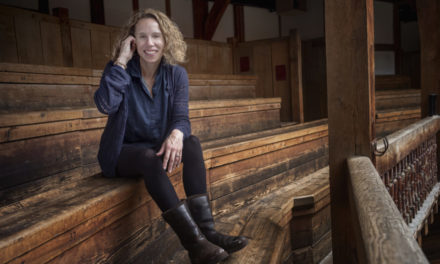Does young theater belong to young people? Pía Gutiérrez discusses the current state of theater in Santiago, and, in this series, highlights four young artists and companies who are making a strong impact in Chile today. This editorial is part of the series, Spotlight on Chile, which features articles, interviews, and profiles of theatre makers and companies creating work in Chile today.
Talking about new theatre is always dangerous. First of all, because the vitality of the new productions aren’t linked to the youngest theatre makers, and therefore what you can expect is ambiguous. Does young theater belong to young people in Chilean theater? Secondly, because the new productions are a promise, and we are betting that things that are lighting us today will remain strong over time, but really bright stars can be just old stars about to die. I would like to talk now about the work of four theatre makers in their 30s, that I think have so renewed and impressive proposals that they can be considered a new wave of the Chilean theater.
Even though there are a lot of names circling in my head (and please allow me to state this because I am being unfair with all those that I won’t name), I want to dedicate this text to four artists/companies that make me uneasy as both an audience member and Chilean citizen. Those four examples make me think about new theatrical experiences that are projected with bitterness in our context. I am talking about the work of the director of Paula Gonzalez, the company Niño Proletario, Los Contadores Auditores and the company, La Resentida.
I think that the theatrical emergency that is flooding us, sometimes in a reflective and ingenious way, and some other times, as a part of the reproduction of model discourses, can be due to several reasons. One of them is that we have never before in our country had the material conditions to produce theater on this magnitude. These conditions are: the multiplicity of schools for performing actors; the solidification of new venues and cultures venues, at least in the capital; the political measures for financing theatre through the fund FONDART (the funding of the arts). This fund despite looking ambiguous, problematic and loss-making, especially when we speak about creative long-term projects, sustains a bigger flux of annual productions than any other measure taken in other areas.
In addition to this, the Chilean theater has a new relevance in the international arena, as it is being largely promoted by the production company FITAM. FITAM organizes the international festival “Santiago a Mil”. This new relevance of the Chilean theatre abroad can also be due to the collaborative circulation that several artists keep with companies in other countries. All these factors are giving some stability to the theatrical production in Chile nowadays that was difficult to find at other times. This matter undoubtedly has pros and cons.
In this situation, going to Chilean theater in Santiago, which is the city in which I live and where I go to the theater, can become a complex task to fulfill. First, because the information about the shows performed in non-official venues is difficult to find and sometimes, endless and secret. Secondly, because official venues, especially GAM, have become the flagships of the cultural production in Santiago and an important part of the governmental project on the forms of theatrical consumerism, and of the arts in general.
This centralization has darkened and, maybe, made precarious the programming of other venues like Matucana 100, Teatro del Puente or Lastarria 90, that, some years ago, used to be really important emerging places. These three venues even stole some audiences from university theaters.
In this diverse scheme, not always in the venues that appear in the press, artistic and ideological projects that reinvigorate our theater are taking place. Some of them have been part of festivals like “Santiago a Mil” or they have had the support of FONDART or other governmental institutions to be developed, but all things considered they still live in an undefined area that doesn’t make of them established companies nor theater makers.
Pia Gutierrez is Chilean, MA in Literature and Art of the University of Poitiers in France and Ph.D. Candidate in Literature at the Pontifical Catholic University of Chile. She has worked researching the Chilean and Latin American theater, currently, teaches and participates in the project Isidora Aguirre Archive supported by FONDART.
Nicholas Roman is Chilean, Ph.D.Candidate in Latin American Studies at the University of Chile, he is currently writing his thesis on the monstrosity in the novel of the twentieth century in Chile, Argentina, and Brazil.
This post was written by the author in their personal capacity.The opinions expressed in this article are the author’s own and do not reflect the view of The Theatre Times, their staff or collaborators.
This post was written by Pía Gutiérrez.
The views expressed here belong to the author and do not necessarily reflect our views and opinions.


















